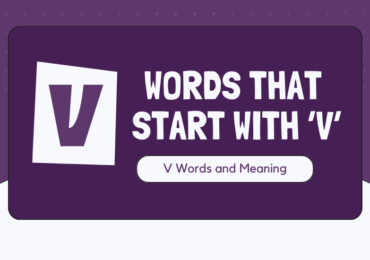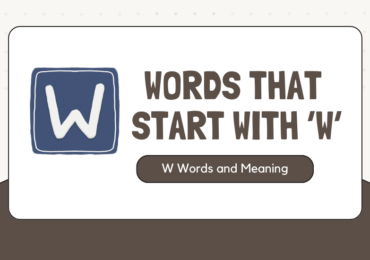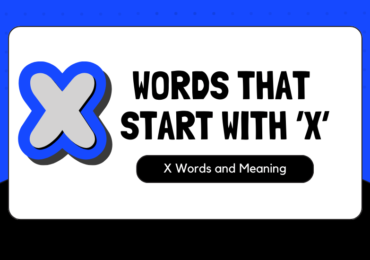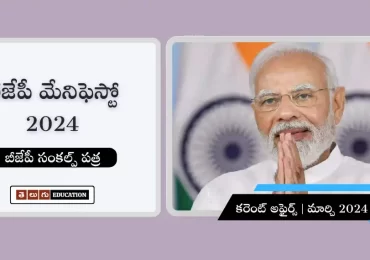ఇంగ్లీషు భాషలో నాలుగు రకాల ప్రశ్నలు ఉన్నాయి. పరాయి భాష నేర్చుకోవడానికి గల ప్రధాన కారణలలో, ప్రశ్నలు అడగడటం ఒకటి. ఎందుకంటె ప్రశ్న మాత్రమే సమాధానాన్ని పుట్టిస్తుంది. నిజానికి పరాయి భాషలు నేర్చుకునే వారికీ సమాధానం చెప్పే అవసరం కంటే, ప్రశ్నలను అడిగే అవసరం ఎక్కువ ఉంటుంది.
కావున ఇంగ్లీషు భాషలో ప్రశ్నలు ఎలా అడగాలో ఈ ఆర్టికల్ యందు తెలుసుకుందాం. ఇంగ్లీషు భాషలో నాలుగు రకాల ప్రశ్నలు ఉన్నాయి.
1. General or Yes/No Questions
వాక్యంలో లేని పదాలు/ మాటలు, వాక్యం ముందు చేరడం ద్వారా ఏర్పడే ప్రశ్నలను General or Yes/No Questions అంటారు. ఇంకా అర్థమయ్యేలా చెప్పాలంటే, అవును లేదా కాదు అనే సమాధానాలను ఇచ్చే ప్రశ్నలను Yes/No Questions అంటారు.
వీటి సమాధానాలు సాధారణంగా “yes” or “no.” రూపంలో లేదా కొంచెం విడమరిచి చెప్తే “Yes, I do.” “No, I don’t like విధానంలో ఉంటాయి. ఈ విధమైన ప్రశ్నల ముందు వచ్చే పదాల జాబితాలో Auxiliary verbs ( be, do and have ) or Modal verbs ( can, may,etc.) ఉంటాయి.
- Did she clean the room? – Yes, she did/No, she didn’t.
- Have you done your homework? – Yes, I have/ No, I haven’t.
- Will you buy that dress? – Yes, I will/ No, I won’t.
| Auxiliary verbs | Modal verbs |
|---|---|
| Be Verbs : is, am, are, was, were | can, could, may, might, |
| Do Verbs : do, does, did | will (shall), would, should |
| Have Verbs : have, has, had | must and ought |
2. Special or Wh-Questions
వీటిని రెగ్యులర్ ఫార్మేట్' క్వశ్చన్స్ అనొచ్చు. వీటినే 'డైరెక్ట్ క్వశ్చన్స్' అని కూడా అంటారు. వాక్యం ముందు కొన్ని ప్రత్యేక 'ప్రశ్న పదాలు' (WH Q.words) చేరడం ద్వారా ఏర్పడే ప్రశ్నలను Special or Wh-Questions అంటారు. ప్రశ్నలు అడగడం కోసం ప్రతి భాషలో కొన్ని ప్రత్యేక పదాలు ఉంటాయి. ఇంగీషులో కూడా దీనికి సంబంధించి తొమ్మిది ప్రశ్న పదాలు ఉన్నాయి.
వీటిని క్వశ్చన్ వర్డ్స్ లేదా WH Words లేదా తెలుగులో ముచ్చటగా ప్రశ్న పదాలు అంటారు. ఈ ప్రశ్నలు సాధారణంగా సబ్జెక్టు ప్లేసులో ఉండే కర్తను, క్యూస్షన్ వర్డుచే మార్పు చేయడం ద్వారా ఏర్పడతాయి. ఉదాహరణకు ఈ క్రింది వాక్యాలలో సబ్జెక్టును Wh పదాలతో మార్చడం ద్వారా ఈ విధమైన ప్రశ్నలు ఎలా ఏర్పడతాయో చూద్దాం.
- We (Subject) go to the cinema. – Who goes to the cinema?
- The glass (Subject) is on the table. – What is on the table?
- Most girls (Subject) here wear skirts. – Who wears skirts here?
Wh Question words in english
| Who = ఎవరు ? | When = ఎప్పుడు ? | Whom = ఎవరిని ? |
|---|---|---|
| What = ఏమిటి ? | Where = ఎక్కడ ? | Which = ఏది ? |
| Why = ఎందుకు ? | How = ఎలా ? | Whose = ఎవరిది ? |
వీటితో పాటుగా మరికొన్ని ప్రశ్న పదాలు కూడా మనం ఈ క్రింది పట్టికలో చుడ్డొచ్చు.
|
|
| Question Word | Example Question |
|---|---|
| Who |
|
| What |
|
| When |
|
| Where |
|
| Why |
|
| How |
|
| Which |
|
| Whom : (Whom + did + (You, They, He, She, Ram, Sita) + verb?) |
|
| Whose : (Whose + did + (He, She, It, I, We, They, you, Ram, Sita) + verb?) |
|
3. Choice Questions
ప్రశ్న వాక్యంతో పాటుగా సమాధాన వాక్యాల ఎంపికను ఆఫర్ చేసే ప్రశ్నలను Choice Questions అంటారు. ఇవి పోటీ పరీక్షలో మనం సమాధానం చేసే ముల్టీఫుల్ ఛాయస్ ప్రశ్నల మాదిరి ఉంటాయి. ఈ రకమైన ప్రశ్నలలో రెండు భాగాలు ఉంటాయి. అందులో మొదటి భాగం ప్రశ్నకు సంబందించిన వాక్యం కాగా, రెండవది సమాధానంకు సంబంధించిన వాక్యమై ఉంటుంది. రెండు వాక్యాలను కలుపుతూ 'Or' అనే Conjunction పదం ఉంటుంది. కొన్ని సార్లు Conjunction కీ, రెండవ వాక్యానికి మధ్య హెల్పింగ్ వెర్బ్ కూడా వస్తుంది. ఇప్పుడు ఉదాహరణ చూద్దాం.
- Does she like ice cream or sweets? – She likes ice cream.
- Where would you go, to the cinema or the theatre? – I would go to the cinema.
- Is he a teacher or a student? – He is a student
- Does she make it or do you? – She does.
- Did they buy that house or did she? – They did.
4. Disjunctive or Tag Questions
Choice Questions మాదిరిగా ఈ ప్రశ్నలు కూడా రెండు వాక్యాలతో ఏర్పడతాయి. ఇందులో మొదటి వాక్యం పాజిటివ్ స్టేట్మెంట్ సంబంధించి ఉంటె, రెండవ వాక్యం నెగిటివ్ స్టేట్మెంట్ అయ్యి ఉంటుంది. లేదా వీటికి విరుద్దంగా కూడా ఉండొచ్చు.
ఈ రకమైన ప్రశ్నలలో, ప్రశ్నలోని మొదటి వాక్యం యొక్క స్వభావం అనుచరించి, సమాధానం యొక్క స్వభావం అంచనా వెయ్యొచ్చు. ప్రశ్నలోని మొదటి వాక్యం పాజిటివ్ స్టేట్మెంట్ అయితే సమాధానం కూడా పాజిటివుగా వస్తుంది. అదే నెగిటివ్ స్టేట్మెంట్ అయితే నెగిటివ్ సమాధానం వస్తుంది.
ఈ రకమైన ప్రశ్నలు మన తెలుగు భాషలో కూడా చుడ్డొచ్చు. మనం తరుసుగా ఉపయోగించే కదూ ?, కాదూ ?, ఉందా ?, లేదా ?, అవునా ?, ఉన్నారా ? అనే మాటలన్నీ ఈ కేటగిరికి చెందినవే. ఈ రకమైన ప్రశ్నలు మొదటి వాక్యంలో ఒక రకమైన స్టేటుమెంట్ చెపుతూ, రెండవ వాక్యంలో ఎదుటివాళ్ళ అభిప్రాయాన్ని అడిగే క్వశ్చన్ వాక్యం ఉంటుంది. వీటిని ఇంగ్లీషులో క్వశ్చన్ టాగ్ అంటారు. Ex : "రాము మంచి బాలుడు, కాదూ ?
- He sent him an invitation, didn’t he? – Yes, he did. ( అతను అతనికి ఆహ్వానం పంపాడు, పంపలేదూ అతడు? - అవును, అతను పంపించాడు )
- You aren’t getting married, are you? – No, I am not. (మీరు వివాహం చేసుకోలేదు, చేసుకున్నారా మీరు ? - లేదు, నేను చేసుకోలేదు)
- Roja isn’t in Hyderabad, is she? – No, she isn’t. ( రోజా హైదరాబాదులో ఉంది, లేదా ఆమె? - లేదు, ఆమె అక్కడ లేదు)
- Our dad will come soon, won’t he? – Yes, he will. (మన నాన్న త్వరలో వస్తాడు, రావటం లేదా అతడు ? - అవును, అతను వస్తున్నాడు )
స్టేట్మెంట్ వాక్యంలో ఏ క్రియ ఉంటుందో, ఆ క్రియతోనే టాగ్ ప్రశ్న ప్రారంభమౌతుంది. కానీ స్టేట్మెంటులో వున్న క్రియకు వ్యతిరేఖంగా టాగ్ లో క్రియ వస్తుంది. మొదటి వాక్యంలో 'Is' క్రియ ఉంటె, టాగ్ వాక్యంలో is not రూపంలో వస్తుంది. దీన్ని సంక్షిప్తంగా isn't అని రాస్తాం.
అదే స్టేట్మెంట్ వాక్యంలో క్రియ Is not అని ఉంటె టాగ్ వాక్యంలో is అవుతుంది.Tag ప్రశ్నల గురించి ఇంకో విషయం. ఈ ప్రశ్నలలో "కర్తగా" ఎప్పుడూ Noun రాదు. Pronoun మాత్రమే వస్తుంది.
ఇంగ్లీషు భాష యొక్క వాక్య నిర్మాణంపై మీరు పట్టు సాధిస్తే, క్వశ్చన్ వర్డ్ అంశం సులభంగా అర్దమవుతుంది. అలానే ఈ నాలుగు రకాల ప్రశ్నలపై పూర్తిస్థాయి అభ్యసన చేయండి. భాషను మీరు ఎంత ఎక్కువ ఉపయోగిస్తే.. అది అంత సులభంగా అర్దమవుతుంది. ఇంతటితో క్వశ్చన్ వర్డ్ అంశం పూర్తిఅయింది









